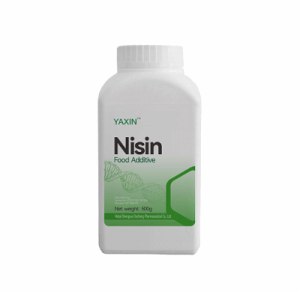
Nisin synergy with other antimicrobials
TIME:2024-01-15
Nisin has been studied for its potential synergistic effects with various antimicrobial agents, including antibiotics and other natural antimicrobial peptides.Synergistic combinations can enhance the overall antimicrobial activity, reduce the risk of resistance development, and broaden the spectrum of activity.
Nisin has been studied in combination with conventional antibiotics to enhance their effectiveness.For example, combining nisin with antibiotics such as penicillin, vancomycin, or ampicillin has been shown to increase the antimicrobial activity against a variety of bacterial strains, including those resistant to antibiotics alone.
Nisin belongs to a class of antimicrobial peptides known as lantibiotics.Synergy has been observed between nisin and other lantibiotics, such as mersacidin.These combinations can exhibit a more potent antimicrobial effect, particularly against Gram-positive bacteria.
Some studies have investigated the synergy between nisin and chelating agents, such as ethylenediaminetetraacetic acid (EDTA).Chelating agents can disrupt bacterial cell membranes and enhance the penetration of antimicrobial agents, including nisin, into bacterial cells.
Bacteriocins are antimicrobial peptides produced by bacteria.Combining nisin with other bacteriocins, either from the same or different bacterial species, has shown synergistic effects. This approach can provide a broader spectrum of activity against various bacterial strains.
Synergy has been observed between nisin and certain plant-derived antimicrobial compounds. For example, combining nisin with essential oils or plant extracts has been studied for potential applications in food preservation and pharmaceutical formulations.
The combination of nisin with surfactants, such as Triton X-100, has been explored.Surfactants can disrupt bacterial membranes, and their synergistic action with nisin can enhance the overall antimicrobial activity.
Nisin has been studied in combination with metal ions, such as zinc or silver.The presence of metal ions can potentiate the antimicrobial effects of nisin, possibly through interactions with bacterial cell surfaces or interference with essential cellular processes.
Understanding and harnessing the synergistic effects of nisin with other antimicrobials are important for developing effective and sustainable strategies for combating bacterial infections, particularly in the context of rising antibiotic resistance.However, it's crucial to conduct further research and clinical studies to validate the safety and efficacy of these combinations in specific applications.

 CONTACT
CONTACT




